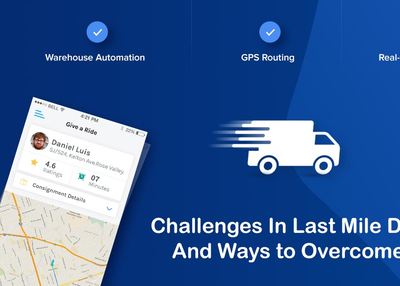
We are living in a transformational era of human history where Artificial Intelligence (AI) forms a central part of this transformation. The digital revolution has redefined many aspects of human life and this trend is not settling anytime soon, in fact, many technological advancements are foreseen in this space.
Modern businesses rely a lot on logistics solutions and among many others, AI has made technological disruption in the logistics sector as well. Artificial Intelligence has a huge presence in our personal lives and its application in businesses is increasing at a fast pace.
Given the degree of reliability and dependency of almost every business on logistics and stretch of functions within the logistics industry, there is no doubt in the fact that AI has a lot of scope in this sector. Let’s explore the numerous opportunities for AI in the logistics sector, how it is revolutionizing the sector and the scope it holds for the future.
FINANCIAL ABNORMALITY DETECTION
Logistics companies often to rely on several third parties including charter airlines, subcontracted staff, common carriers and other vendors, crucial to run the business. This requires the accounting teams to process vast numbers of invoices every year thereby leading to an increased burden on them. This is where AI can play a vital role.
With natural language processing, accounting teams can extract critical information from these invoices such as dates, addresses, billing amounts, account details and parties involved. Post data extraction and classification, robotic process automation can help input the data into accounting software to generate order, execute the payment and send a confirmation email to the customer, without human intervention at any point.
For instance, consultancy firm Ernst & Young (EY) is already following a similar approach to detect financial abnormalities. EY’s fraud detection system has recorded 97% accuracy and many companies with high repetitive tasks are planning to follow the path.
COGNITIVE CONTRACTS
Logistics and supply chain management companies, worldwide, manage networks of facilities and several vehicles. The biggest challenge logistics service providers face is to keep the customer contact details updated as it is critical for the successful delivery of shipments.
Many companies are coming up with AI engines that can help manage customers’ contact information by continuously processing uncountable data points. Additionally, natural language processing can also help in pre-processing customer contact information to ensure accuracy, completeness, and consistency.
COGNITIVE CUSTOMS
The Customs declaration process relies heavily on manual work that requires enough knowledge of industry, regulations, and customers. It is both an effort-intensive and time-consuming process with chances of costly mistakes. Also, it is almost impossible for a human worker to maintain consistency in concentration levels throughout the day.
These processes can be augmented and automated using an AI platform by training it with custom regulations, legislative materials, brokerage SME knowledge, industry handbooks. AI-enabled deep learning can help extract relevant information from customs documents by ingesting it and present an automatic declaration.
WORKFLOW AND PROCESS AUTOMATION
Transportation, the most essential element of logistics, is comprised of several small processes. These mostly manual processes such as warehouse management, planning, and scheduling take thousands of man-hours to get through. These processes, if optimized by AI, would create wonders.
PREDICTIVE LOGISTICS: THE NEXT BIG THING
The logistics industry like many others has high uncertainty and volatility. AI can help the industry to shift its business approach from forecasting and reactive actions to predictive intelligence and proactive action.
Predictive network management can help in easy transportation of goods with smart coordination between all the stakeholders including air, sea, and land. The technological innovations including AI in logistics can create new dimensions for the logistics sector and increase its efficiency.
Artificial Intelligence is all set to thrive with the support of current business and societal conditions which have never been so favorable to the adoption of AI.
The author is CEO & Co-founder of 72 Networks



























